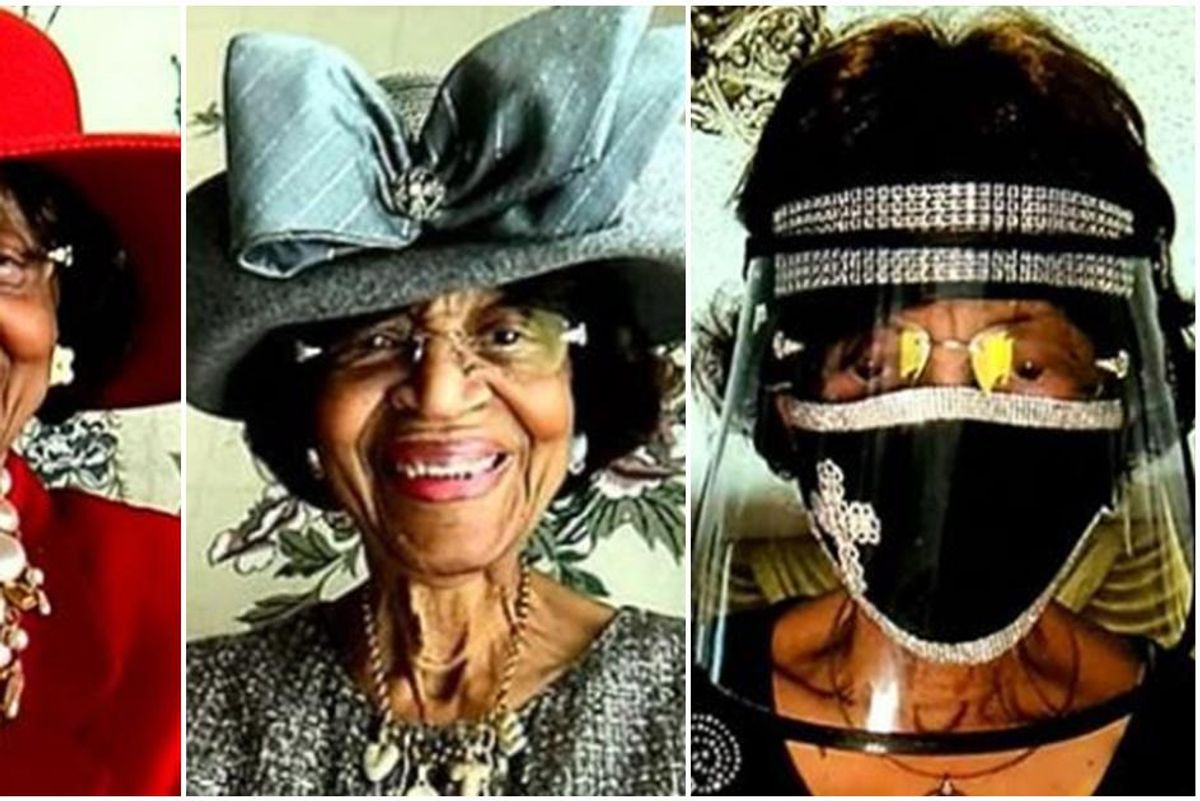
The pandemic has had a big effect on the country’s fashion habits. It’s drastically reduced the number of people going out at night and 42% now work full-time from home. The change has been so drastic that one in six dry cleaners has gone out of business during the pandemic.
The COVID-19 era proves that if people don’t have to dress up, they don’t.
That’s why La Verne Ford Wimberly of Tulsa, Oklahoma is such an inspiration.
She’s a parishioner at Metropolitan Baptist Church and when Sunday services went online last March, it didn’t stop her from dressing to the nines. For 53 Sundays in a row she has dressed in a color-coordinated outfit and, after service, posted a photo of it on Facebook.
“She never skips a beat with the hats, the clothes, and all that beautiful jewelry,” Robin Watkins, 54, the church’s executive office assistant, told The Washington Post.
Wimberly was always known for her head-turning outfits at Sunday service.
“In the 20 years I’ve been going to church there, I’ve always had my little routine that I learned from my mother as a girl,” she said. “I’d pick out a nice outfit and hat and lay it out the night before, so that I could be prepared and look presentable.”
When COVID hit, she decided wasn’t going to let it change how she presents herself to the world.
“I thought, ‘Oh, my goodness, I can’t sit here looking slouchy in my robe,’ ” she said. “I didn’t want to sit around alone and feel sorry for myself, so I decided, ‘You know what? I’m going to dress up anyway.’ “
On her first day of virtual church, she got up early to style her hair and put on some lipstick. She then put on her favorite white dress and a sheer ruffled hat. She even put on matching shoes, a detail no one would notice over Zoom.
After she posted a photo on Facebook she was flooded with compliments.
Wimblery has written down her outfits on a calendar so she never repeats the same one twice. The most dramatic piece of her wardrobe has to be her hats and she has plenty of them. “It’s safe to say that 50 is a good number for the hats,” she confessed.
Her love of fashion was inspired by a school teacher she had growing up. So when she joined the profession after college, she decided to carry on the tradition.
“They’d rub my arm and say, ‘Oh, Miss Ford [her maiden name], you look so pretty,’ ” she recalled. “Pretty soon, I had so many clothes that I started a rotation and color-coding system, so I could keep surprising the kids with my outfits.”
Wimberly is known by her fellow parishioners as “Doctor” because she has a doctorate in education. She would go on to be a principal and then a superintendent.
However, from the looks of it, she could have easily made it in the world of fashion, too.
Fashion psychologist Rose Turner from London College says that dressing up even though we don’t have to is great self-care during a pandemic.
“When other activities that help us to feel ‘like us’ – such as hobbies, seeing friends and going to work – are unavailable, getting dressed up may help people to reinforce their sense of self,” Turner told the BBC.
“Clothing impacts how people think and behave. Putting on a ‘work’ outfit might help with motivation and concentration, and wearing something special might help to break the monotony of lockdown, and lift people’s mood,” she added.
Wimbley’s story is a great lesson for everyone to remember. Just because times are hard, doesn’t mean you have to look like it.
